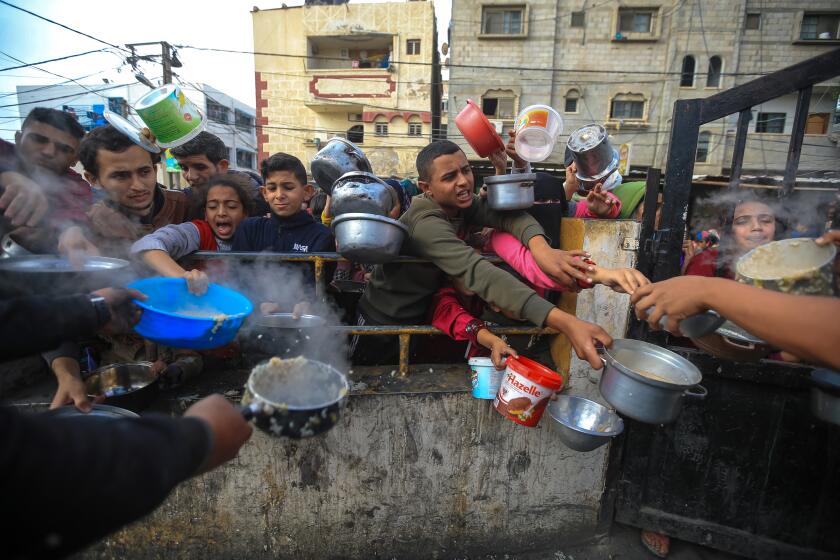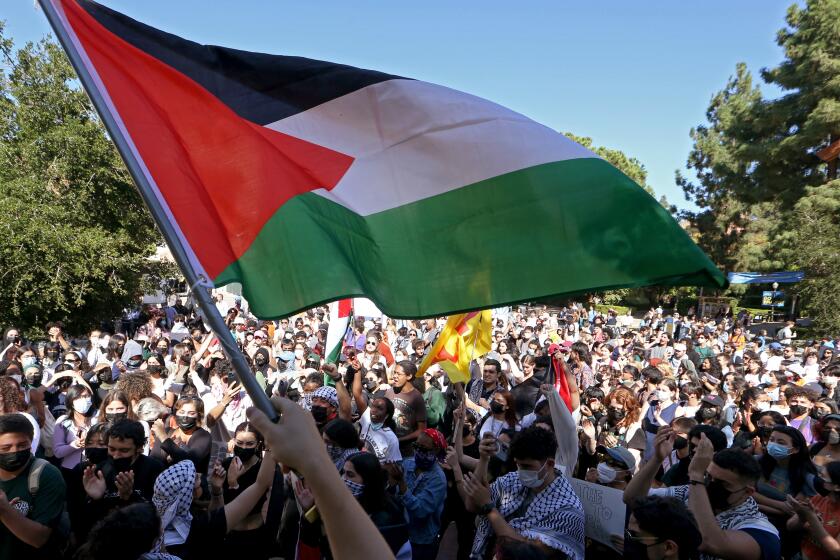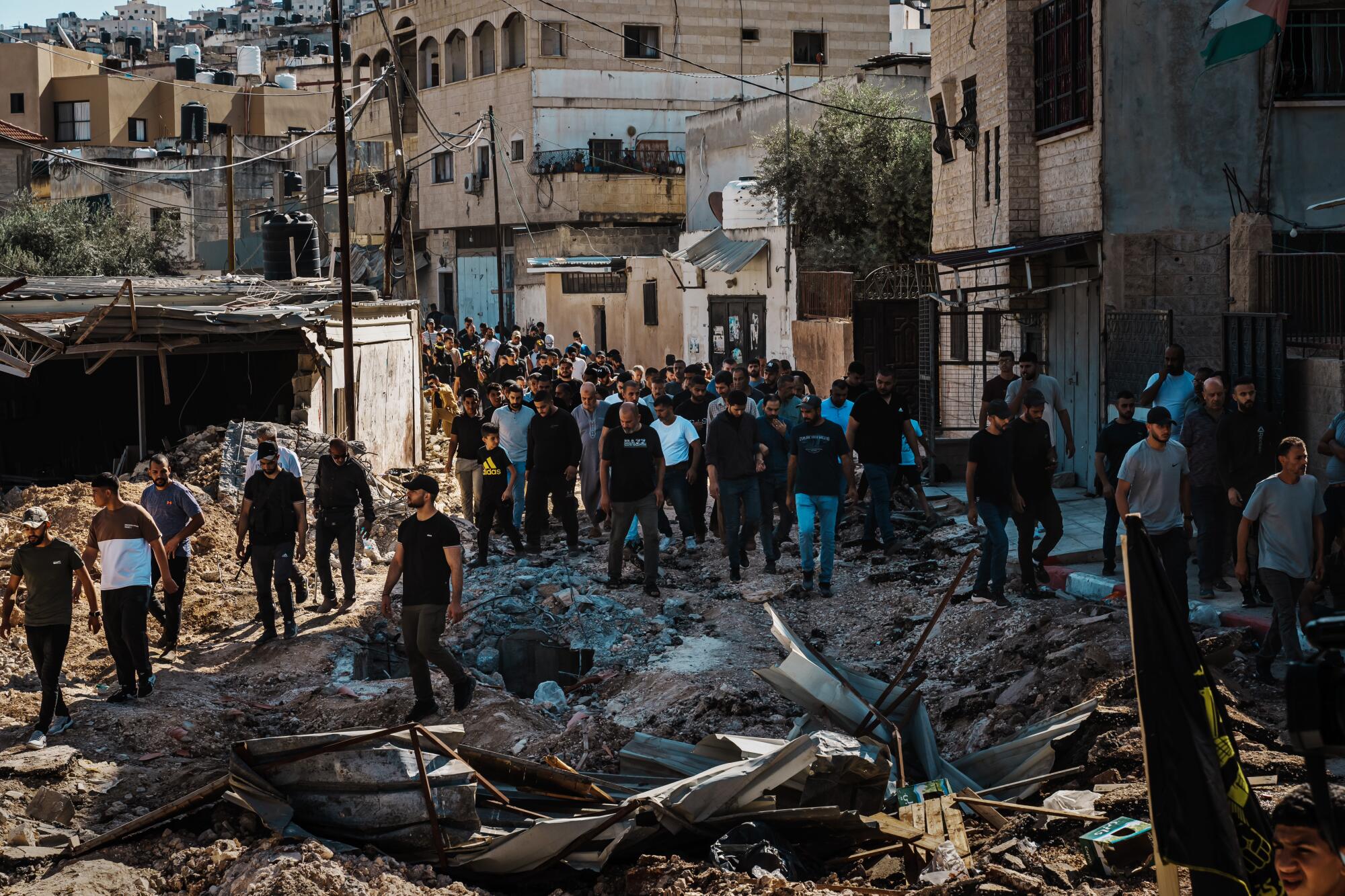
- Share via
JENIN, West Bank — When the raids come, a lot of things happen at once in this Palestinian refugee camp in the occupied West Bank.
Residents shout and round up family members. Many flee on foot, while some speed to safety in cars, honking to rouse others before gunning the engine. Instead of a call to prayer, mosque loudspeakers crackle with warnings of another Israeli army incursion.
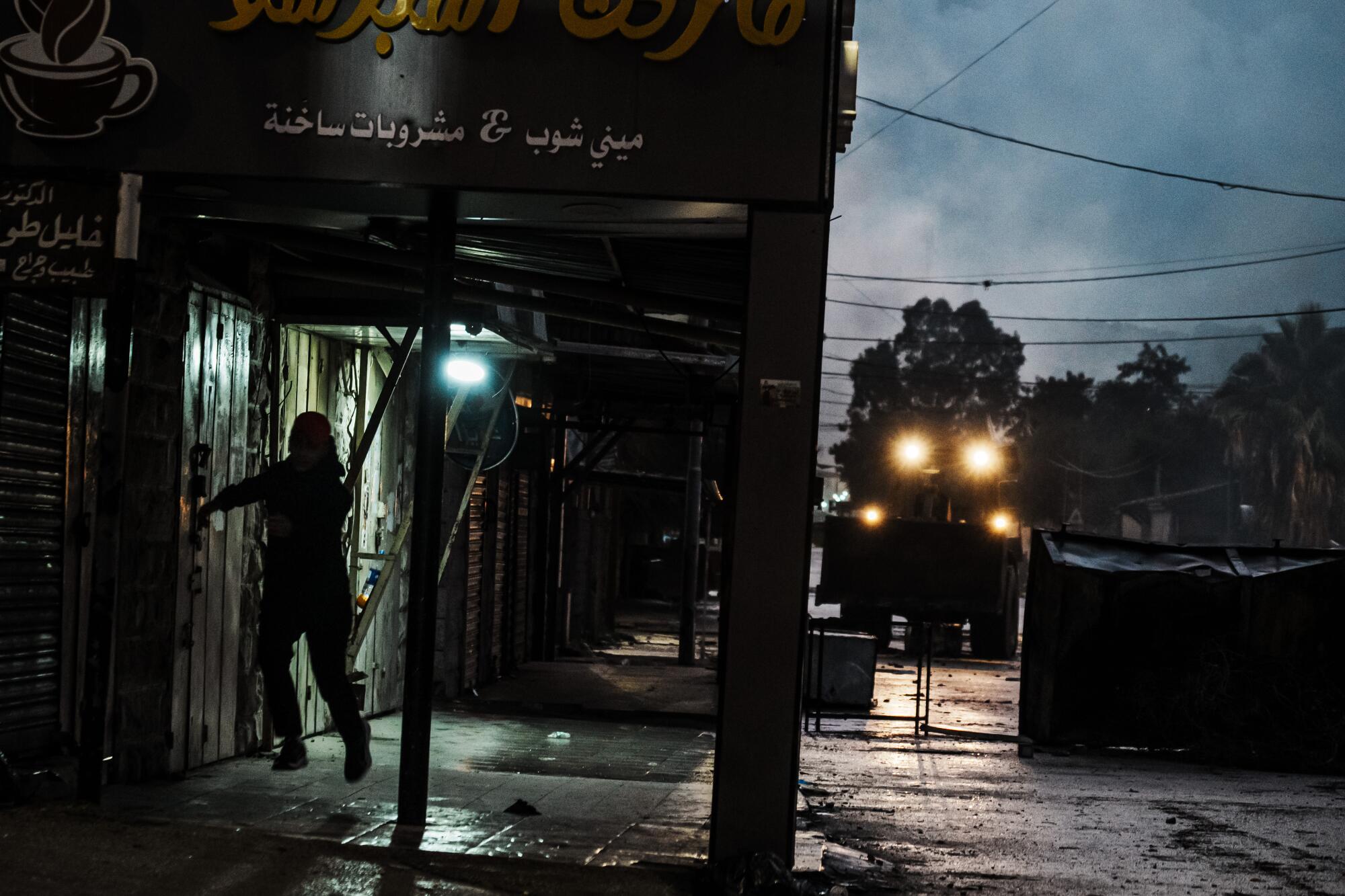
Then there’s the bass-clef rumble of the D9 bulldozer. That’s the sound 33-year-old Issa Hweil listens for.
He knows it’s the prelude to a bout of destruction that will turn the camp’s roads into a churned-up swamp of mud, cracked asphalt and broken pipes.
The morning after one such raid, Hweil climbed into a friend’s skid loader to try to stitch the street back into usable form.
But there was little point.
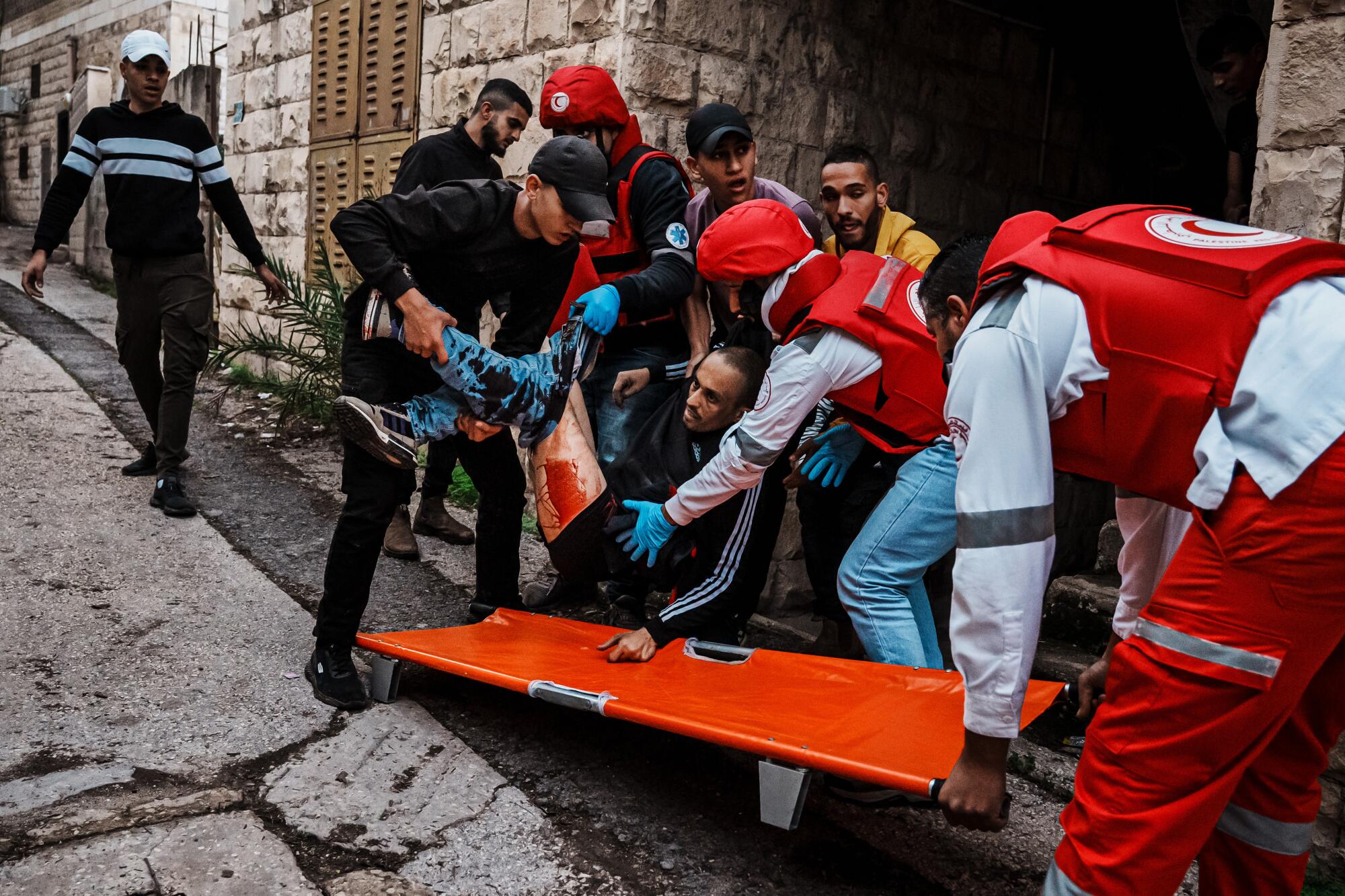
In the aftermath of Hamas’ attack on southern Israel, the Israeli army not only invaded Gaza, it also escalated assaults on areas it considers sources of Palestinian armed resistance in the West Bank.
U.N. and other agencies sound alarm over ‘acute food insecurity’ in Gaza. One in 4 Palestinian households is facing extreme hunger.
The Jenin refugee camp, a ramshackle, claustrophobic neighborhood of old buildings and labyrinthine streets, has been the main target of that strategy.
“Twenty-three? Twenty-four? I’ve lost track of how many times I’ve done this since Oct. 7,” Hweil said as he nudged a pile of masonry away from a storefront, then lowered the loader’s bucket to tamp down the dirt.
Just the other day, he said, he got a message from an Israeli intelligence officer assigned to monitor the camp, advising that he “shouldn’t bother repairing the roads since ‘we’re coming back soon.’ ”
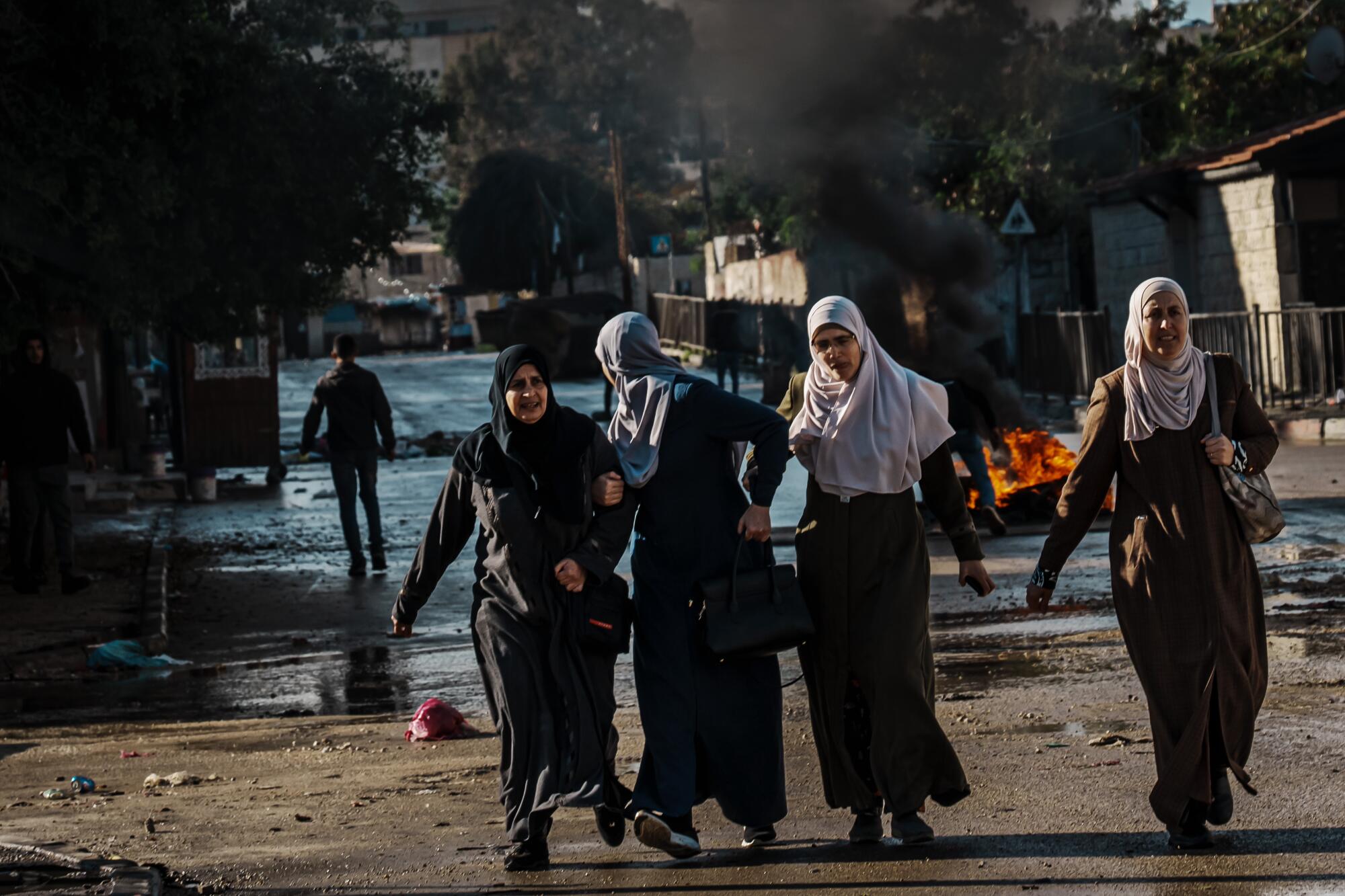
Israel has raided the Jenin camp more than any other West Bank location, killing at least 78 Palestinians here since the war began. That’s around a quarter of all West Bank Palestinians who have been killed in attacks by the army and settlers since the latest hostilities began, according to the United Nations.
Israel says the attacks are aimed at preventing the kind of Oct. 7-style onslaught that left about 1,200 Israelis dead.
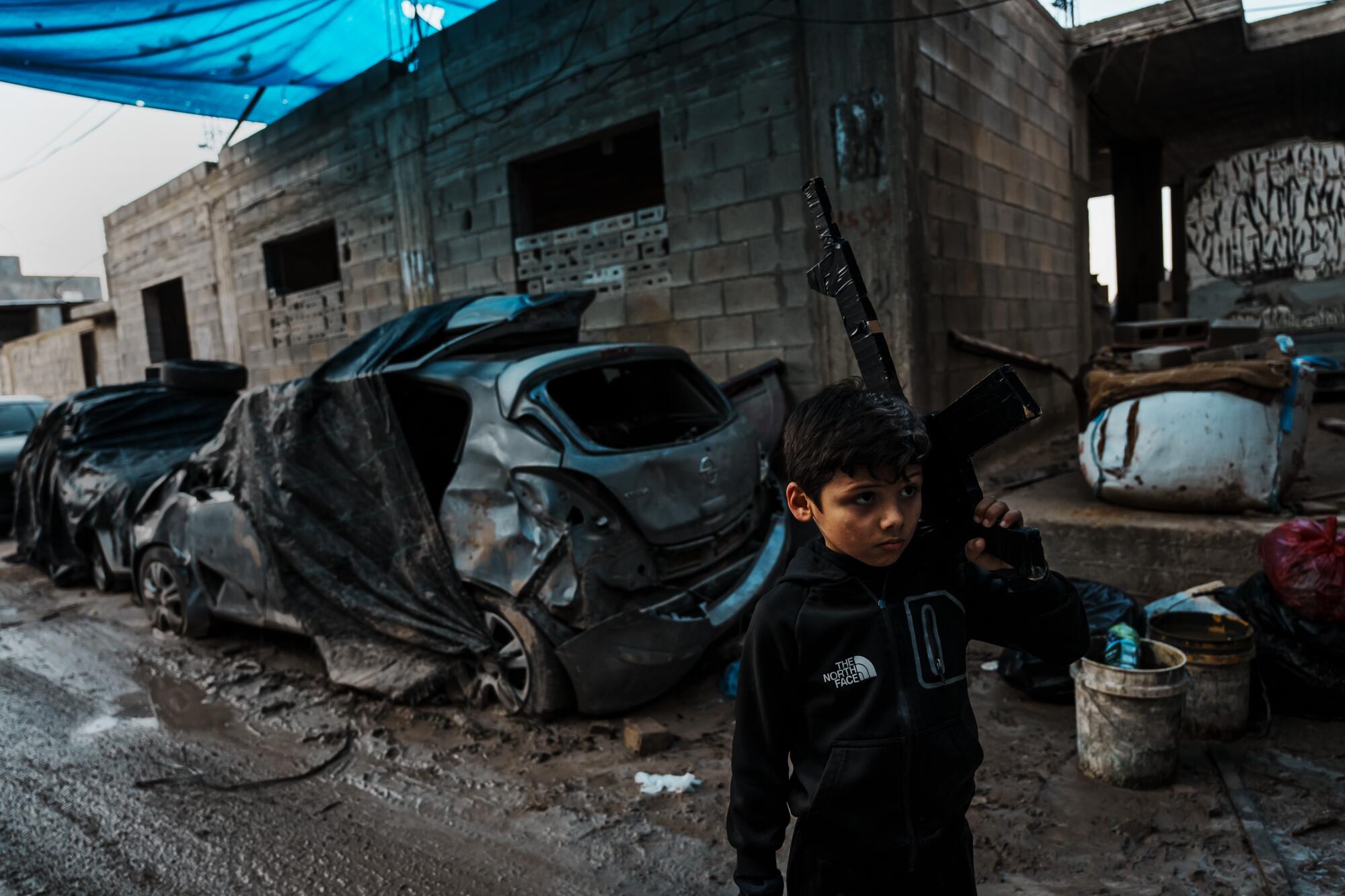
But residents and rights groups say the military campaigns in Jenin have been the most destructive of any Israeli actions outside Gaza, where the Palestinian death toll now stands at about 22,000. Jenin residents insist the intention is to collectively punish centers of resistance and leave them uninhabitable.
“It’s a battle of harassment, not just rifles,” said Ibrahim Diab, 59, who works in Jenin for the Palestinian Authority. “They’re attacking the basics of life here.”
Jenin is the home of one of the 19 refugee camps established to house Palestinians driven from their homes after Israel’s 1948 founding. But more than any other, its name has grown into a symbol of generational dedication to resistance.
Almost every wall, street corner, intersection and light pole bears a poster — some sun-bleached, others newly printed — bearing the face of someone seen here as a martyr. Until a D9 bulldozer demolished them in November, the arches that marked the entrance to the city carried an inscription reading: “A way station until we return [home].”
1
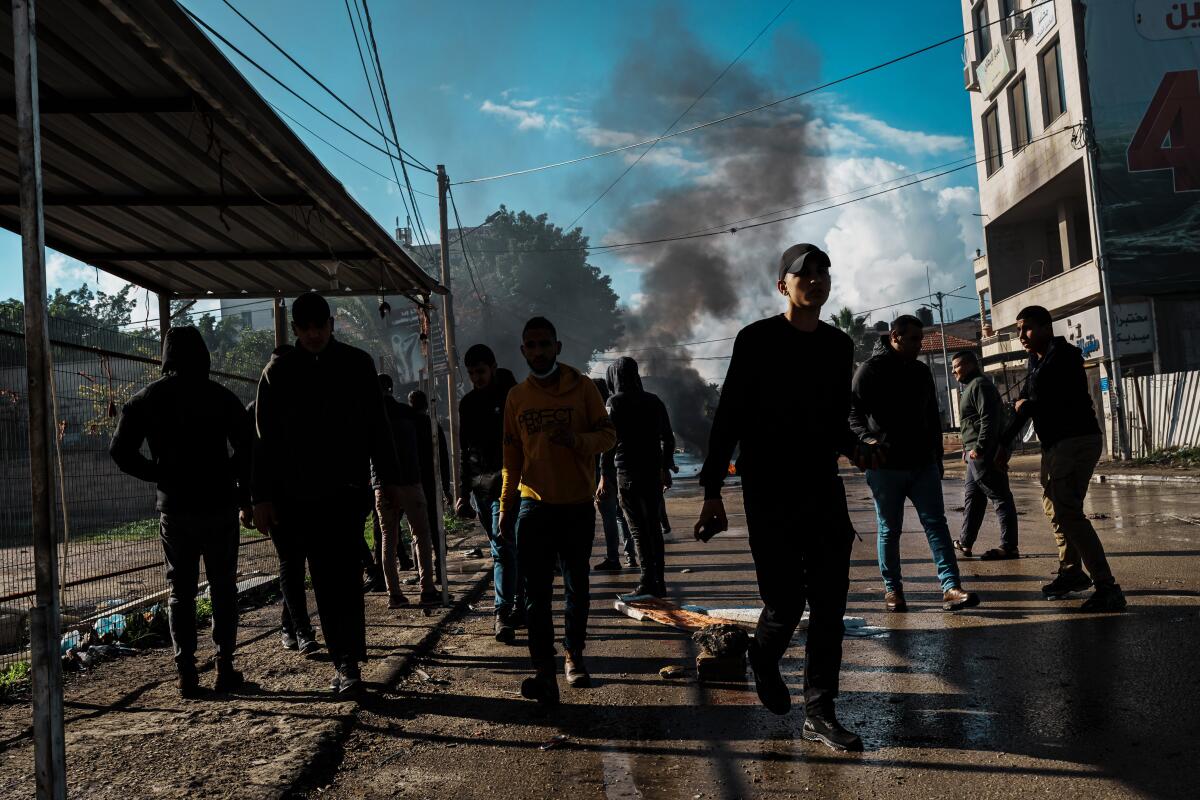
2
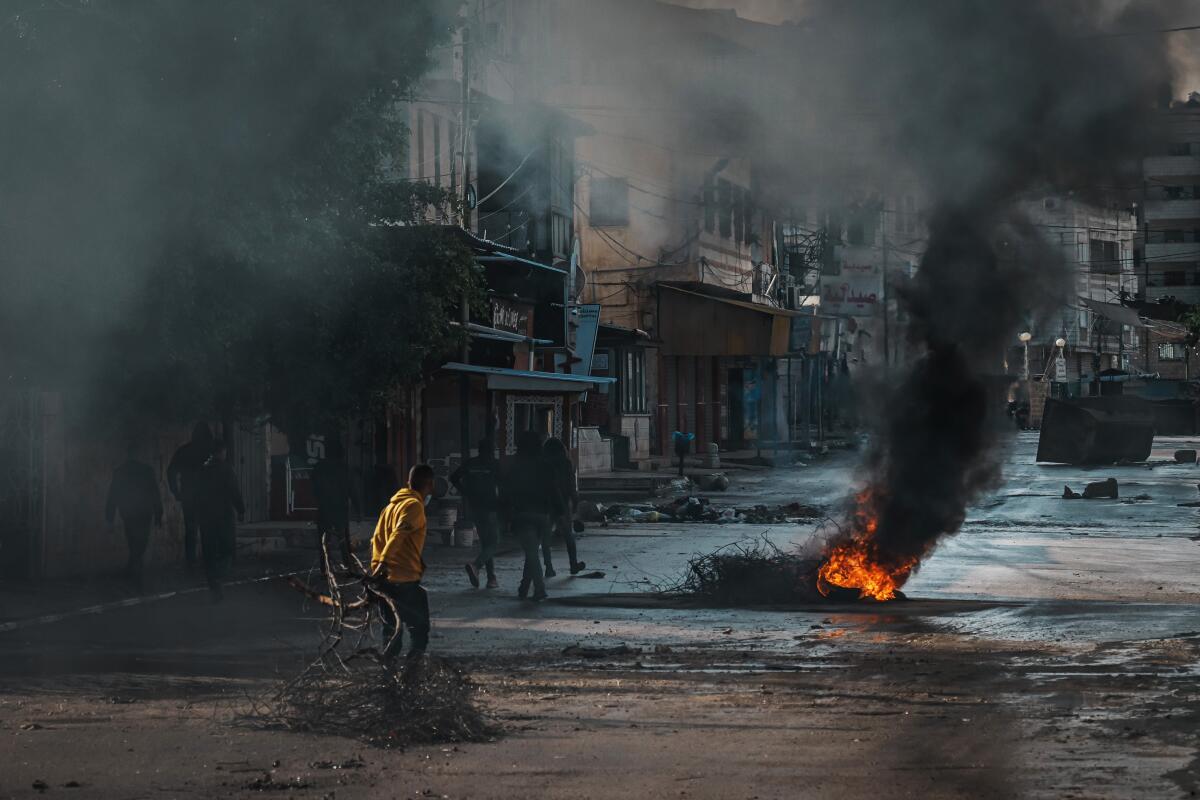
3
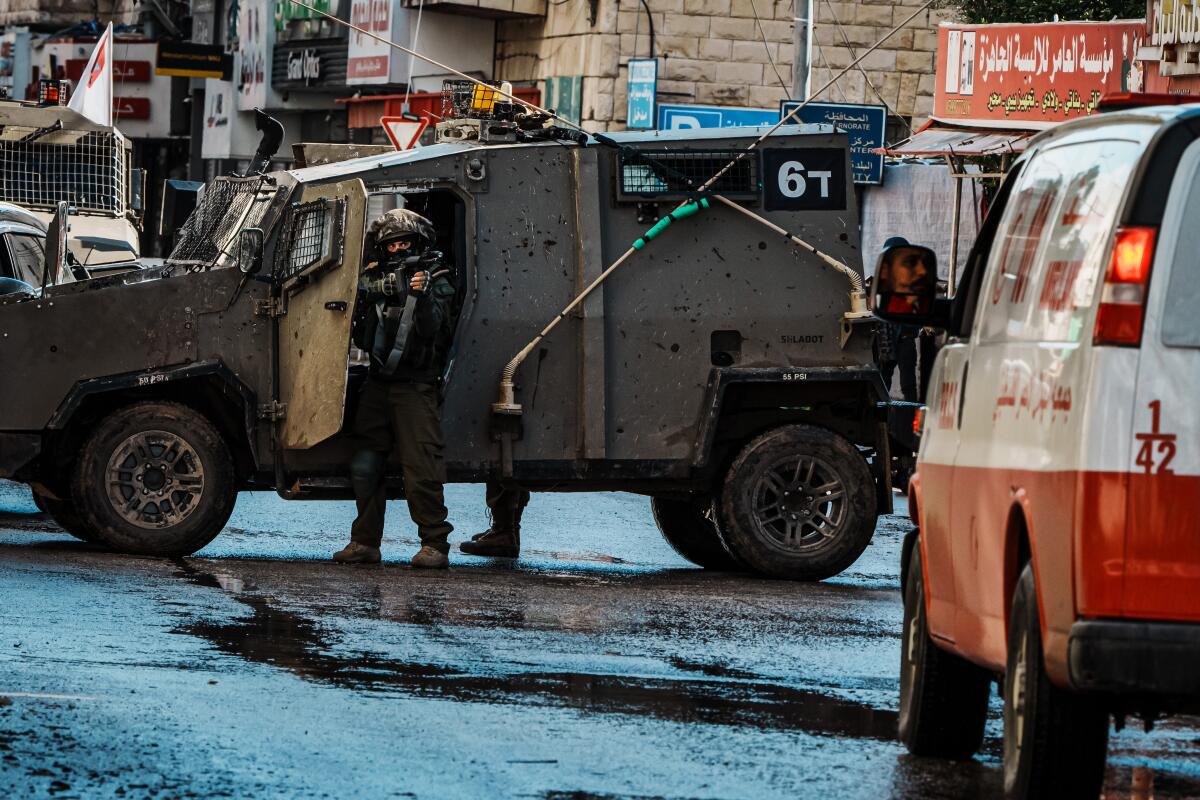
4
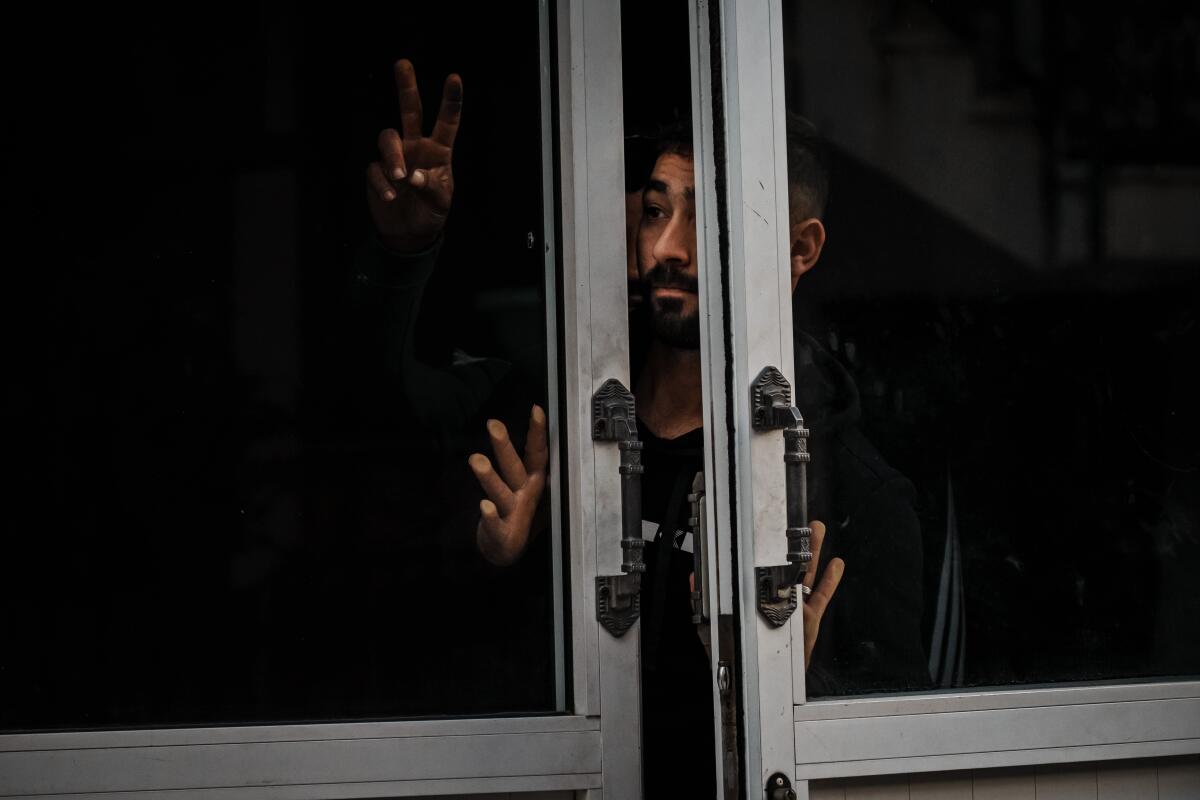
1. Locals react to the presence of Israeli army vehicles cruising through the Al Mahata street as Israeli forces conduct raids throughout the city and inside the refugee camp in Jenin, Occupied West Bank , Wednesday, Dec. 13, 2023. 2. Young men put obstacles on the street in an attempt to block passage for Israeli army vehicles cruising through the Al Mahata street during Israeli raid operations throughout the city and inside the refugee camp in Jenin, Occupied West Bank , Wednesday, Dec. 13, 2023. 3. Israeli soldiers stop and inspect ambulances traveling on Al Mahata street as Israeli forces conduct raid operations throughout the city in Jenin, Occupied West Bank , Wednesday, Dec. 13, 2023. 4. Civilians take cover inside Shifa Hospital, as an Israeli army vehicle approach the building while security forces conduct raid operations throughout Jenin, Occupied West Bank , Tuesday, Dec. 12, 2023.
Residents here say they’ve endured Israeli campaigns before. But nothing like this.
“The Israelis are coming in so often, we don’t know if we’ll have the chance to eat the food we cook for lunch or dinner,” said Mahmoud Abu Saber, sitting in front of his bakery in the camp’s main square — now a muddy, rutted space interspersed with craters brimming with fetid water.
Abu Saber opened his shop five years ago, selling Frisbee-sized discs of taboon bread adorned with red pepper paste, cheese or zaatar. It had always been hard in the camp, he said, but the situation seems more untenable by the day. Tatfeesh, he and other residents call it, an Arabic word that means driving people away.
“How can I sell anything? Who would come to me with the place like this? I’m a baker, and all I do these days is work here in the mud,” he said, gesturing toward a mound of debris left in front of his shop earlier in the day by Israeli bulldozers.
Across the square, a work crew wrestled a thick cable into a trench as Hweil cleared more of the earth to lay it down.
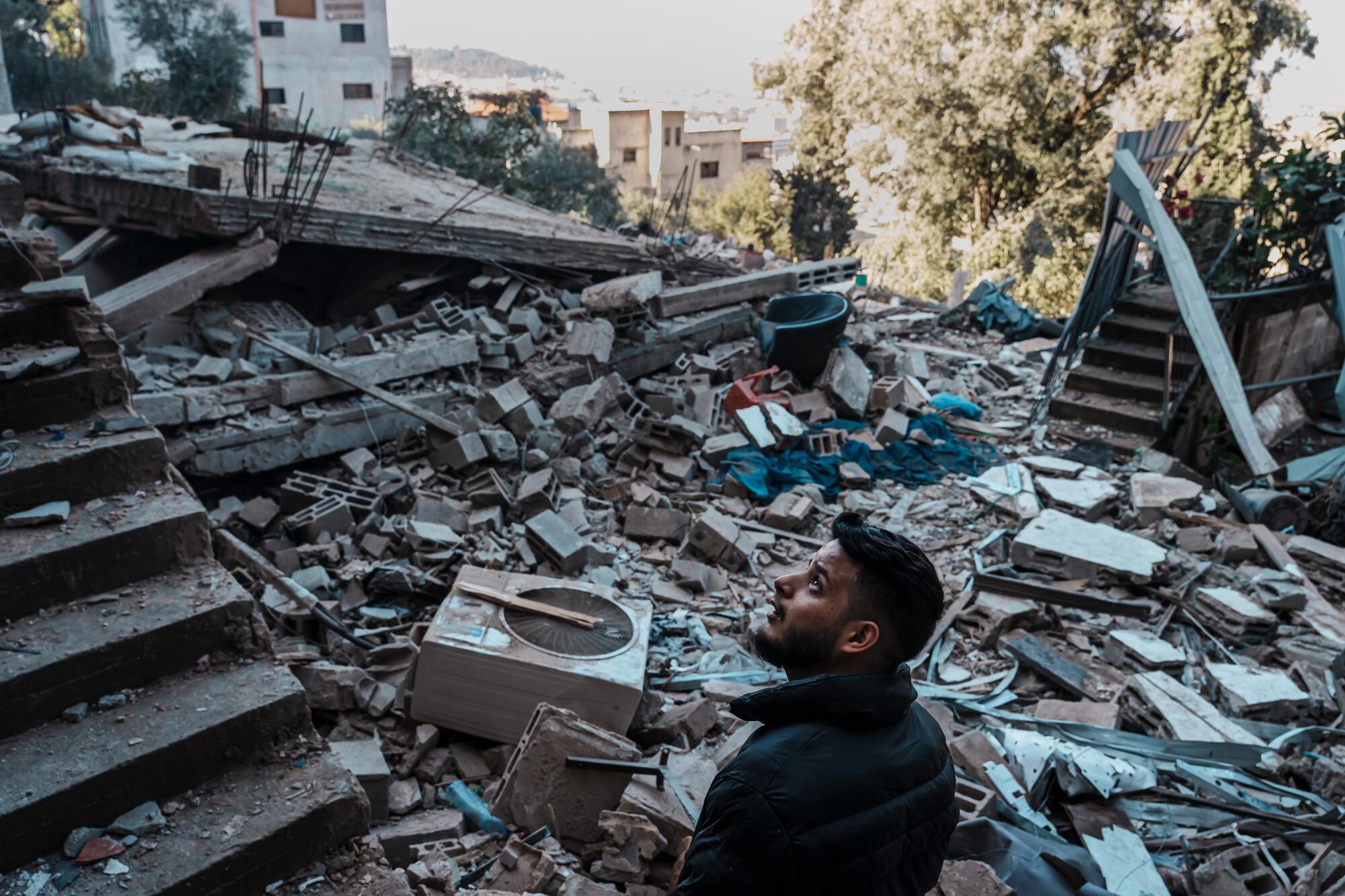
The raids on water, sewage and other infrastructure are taking a toll, even on the battle-hardened residents of Jenin. “People love the resistance, but they’re getting tired,” Hweil said.
Ahmad Hatatrah, a 30-year-old municipal worker donning a yellow vest, and Mahmoud Shraim, 52, who heads the electricity company’s cable division, said two bulldozers recently clawed out three feet of earth to get to the high-voltage cable and then yanked it out.
“Every raid we have a problem with the electricity,” Shraim said. “Poles. Cables. Generators. Every time. And it’s huge losses.” He said it was the seventh time he had been called to oversee the same repair.
After one recent raid, residents returned the day after to take stock of the carnage to their homes.
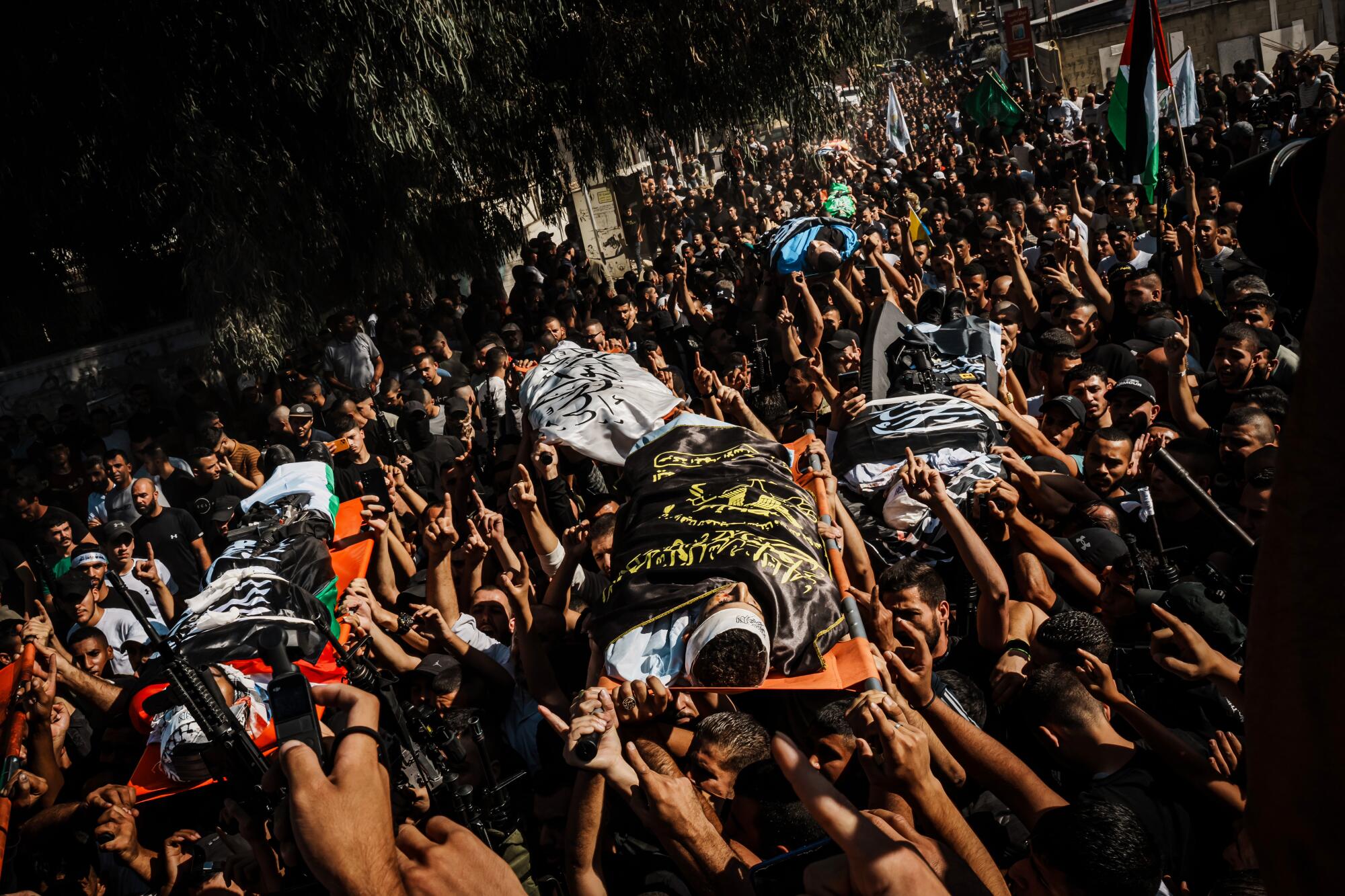
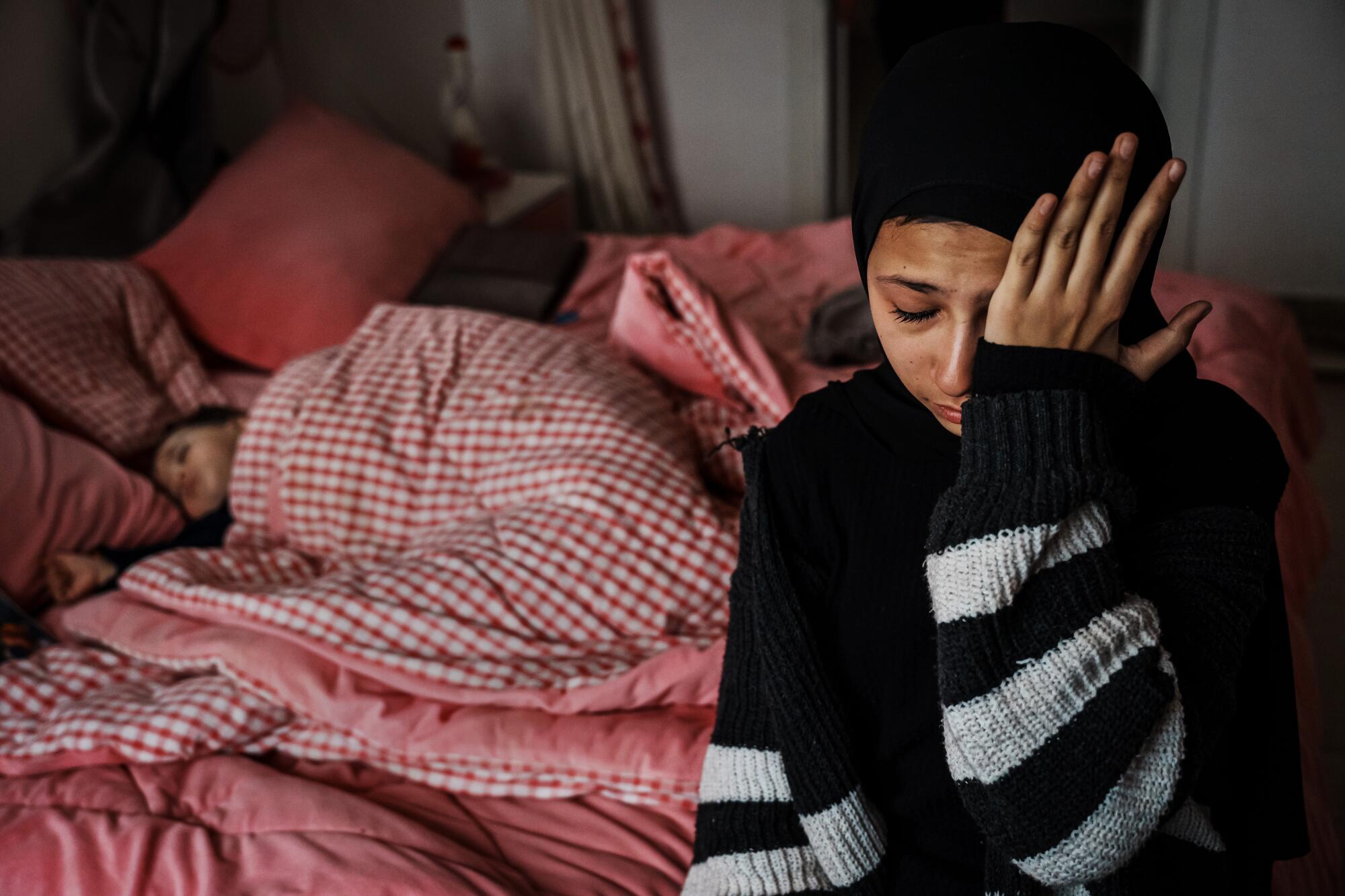
Ehab Mareei, 23, stepped over the rubble of his apartment, which was destroyed in an airstrike. Mohammad Sabbagh trudged through the charred hallways of his family home, salvaging what toys he could find for his 5-year-old son Hamzah.
Every night, most of the camp’s residents go to relatives and friends living in the city or its surrounding villages and suburbs.
Khaldiyah Bzour, 33, did that for a while, corralling her two daughters to a friend’s place at dusk. “I’d take a pot of food — I didn’t want to be a burden. But it felt like it was too much,” she said.
Working as a house cleaner, she doesn’t make enough to rent anywhere else. Now during raids she and her children hole up in a corner by the bathroom, where another wall separates them from their one-room apartment’s exterior. “Every time I hear the D9, I start to shake,” she said.
A few hours later, another raid began. A windowless white van drove down one of the camp’s main thoroughfares and then sped away in reverse when residents became suspicious.
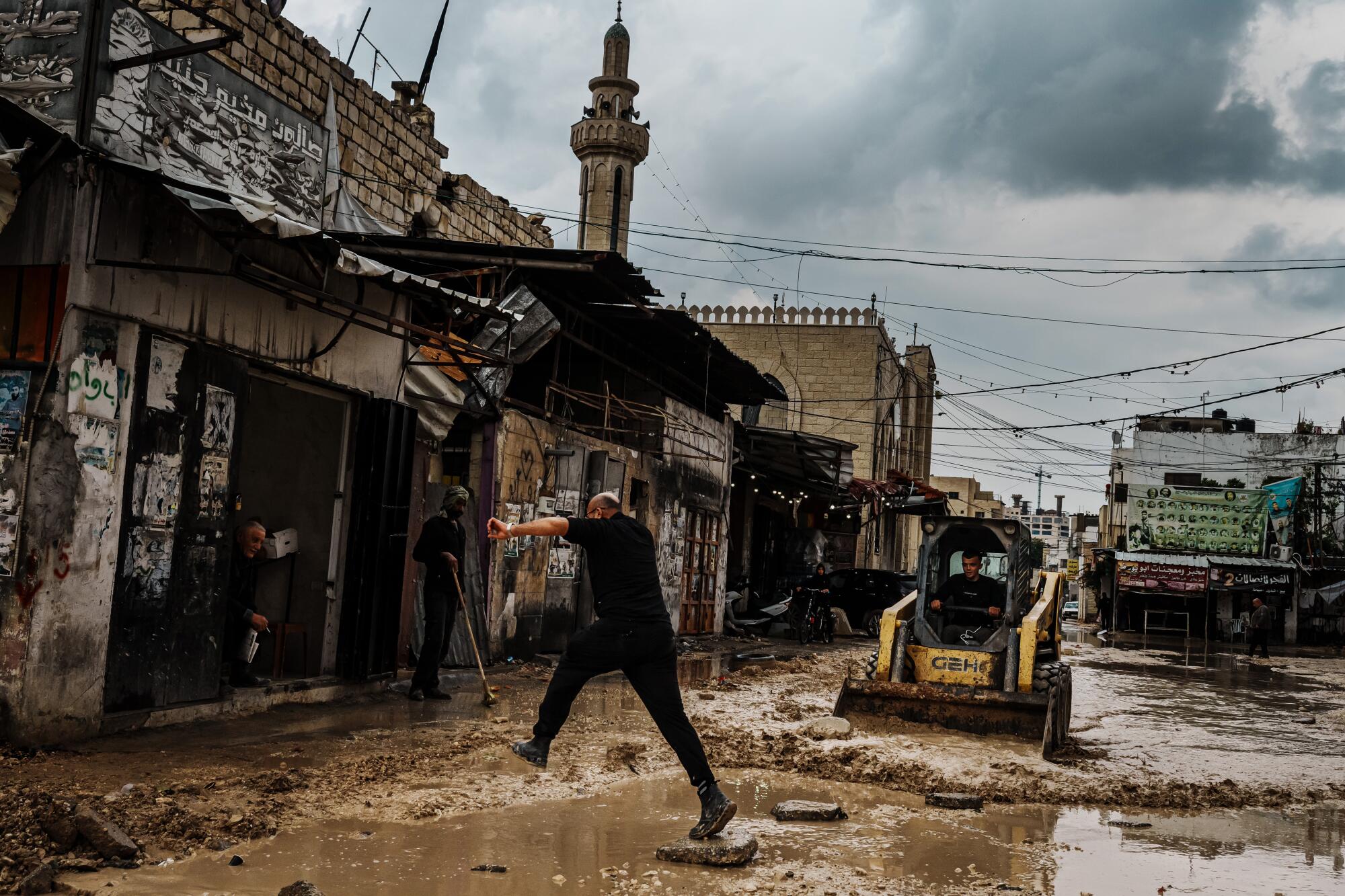
“Quwaat Khaasah,” they shouted — Israeli special forces. The clack of assault rifles being fired punctured the air. Activists on the messaging app Telegram warned of a convoy of Israeli army vehicles rolling out of a nearby checkpoint toward the camp. Merchants hurried to ring up purchases and shuttered storefronts.
Fleeing cars deluged the road leading away from the camp as young militants streamed the other way, toward a roundabout, and assembled just out of sight of the Israeli military vehicles blocking the entrance to the state hospital down the street.
After 11 weeks of war in Gaza, the Israeli military campaign against Hamas now sits among the deadliest and most destructive in recent history
One of the men strode up, raised an assault rifle and fired a few rounds toward the Israelis. Another waited with what he called an ashlaga — a small canister loaded with a mix of sugar, coal and other materials to make an incendiary device.
The crowd recoiled and ran back up the street. From another direction, people started to shout: “Army! Army!” Eight armored Israeli vehicles drove through the street, the last one shooting from its rear port.
A week later brought another raid, this time a 60-hour onslaught that killed 12 Palestinians, according to local health authorities. Troops went house to house, detaining hundreds. They also surrounded all of Jenin’s hospitals and blocked ambulances from picking up wounded people for treatment, Palestinian medical staff said.
1
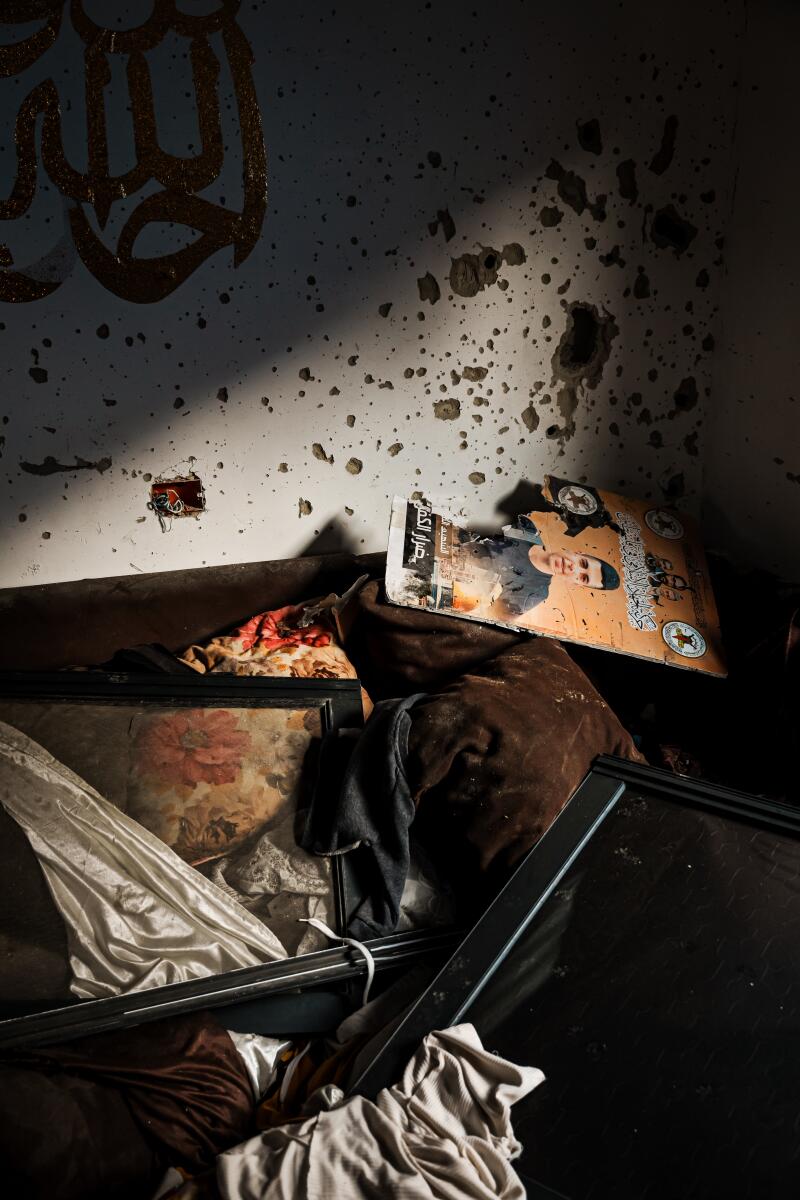
2
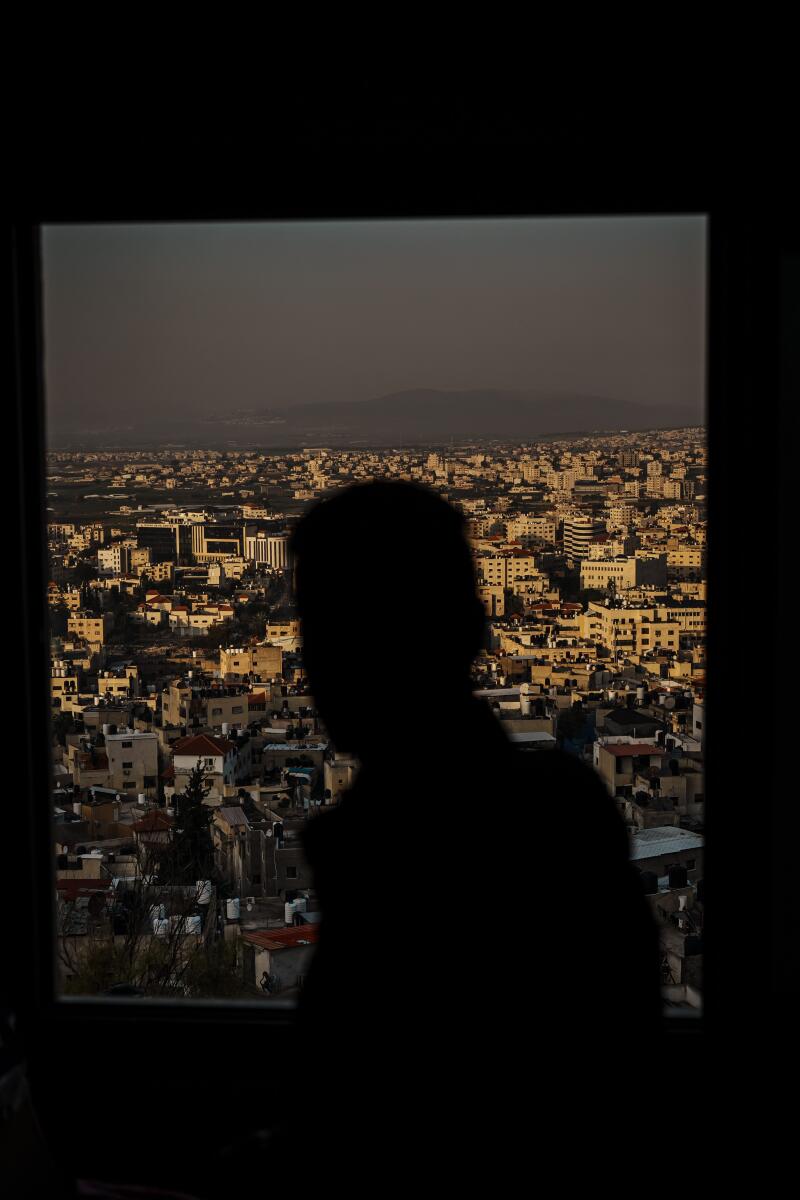
1. Bullet holes could be seen on the walls and in items inside a home after Israeli security forces conducted a raid in Jenin Camp, Occupied West Bank , Monday, Dec. 11, 2023. 2. Muhammad Meerai looks out at a hilltop view of Jenin Camp, Occupied West Bank , Monday, Dec. 11, 2023.
Israel denies its actions in Jenin are aimed at harassing Palestinians or making the camp unlivable.
Officials say they have launched numerous targeted assaults designed to dismantle “terrorist infrastructure” or capture militants accused of killing Israelis or plotting attacks.
They said the raids have killed several militant leaders who were taking refuge in the Jenin camp and cut down groups like the Jenin Battalion, an umbrella of Palestinian fighters financed by the Iran-backed Islamic Jihad group.
They also say that their soldiers have seized explosive devices and other weapons, and uncovered tunnel shafts and labs for manufacturing explosives.
Faculty members across the University of California system have launched an unprecedented organizing drive to protect campus supporters of Palestinians who have been harassed and threatened, especially since the Israel-Hamas war exploded.
Two recent Israeli drone strikes in Jenin targeted militants who were hurling explosives and shooting at troops, Israeli officials said.
At least three Israeli soldiers have been killed and at least 17 wounded in the West Bank since the conflict began, including seven who were ″lightly wounded″ during one recent raid in Jenin, the army said. Officials did not respond to requests for more specific casualty figures for Jenin.
Residents say the raids have gone far beyond what is needed to flush out weapons and militants, targeting the city’s cultural and religious symbols and institutions.
Bulldozers have smashed murals and shrines commemorating Palestinian resistance. During the three-day raid in December, Israeli soldiers painted a Star of David or slogans like “Long live Israel” on walls and ripped up posters of Palestinians killed in the violence.
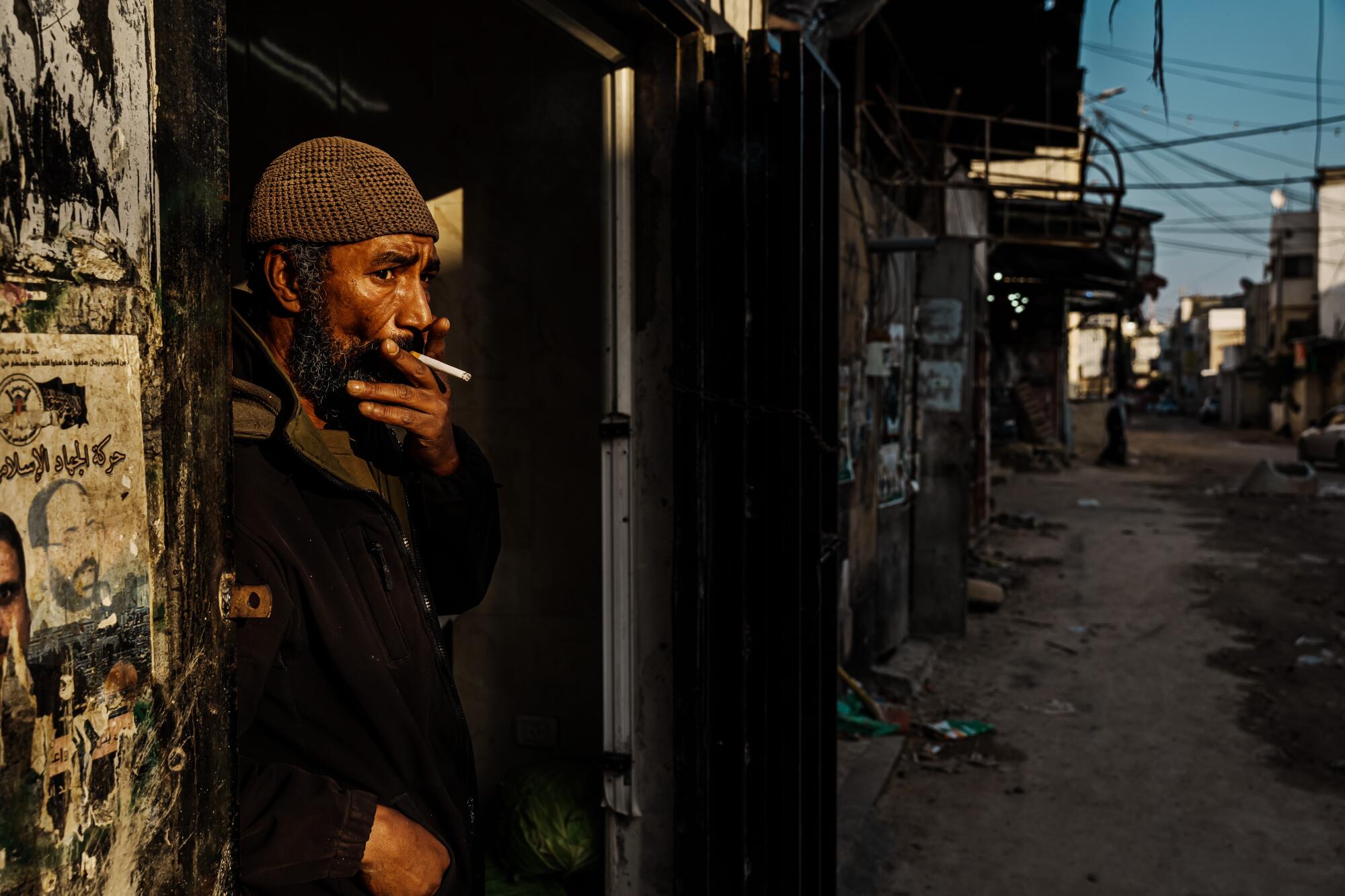
A widely circulated video on social media showed an Israeli soldier reciting a Jewish prayer in the camp’s mosque; the words “We came to eat hummus” were spray-painted on its dome.
The Israeli army later said it suspended the soldiers in the mosque video from operational activities, saying the behavior was ″serious″ and ″in complete opposition″ to its values.
Israel also struck the Freedom Theater, which was founded in 2006 and has become one of its cultural touchstones.
“Everything is destroyed and I don’t know why,” said Ahmad Tobasi, the theater’s artistic director, in a recent television interview. “It’s a theater. Not a military base. Not a terrorist house.”
He added that he was among more than 100 men detained by the Israelis. He was arrested in front of his children, blindfolded and taken to a nearby checkpoint, where he said he and others were subjected to beatings. The theater’s manager, Mustafa Sheta, remains in custody with no word as to his whereabouts, his family said.
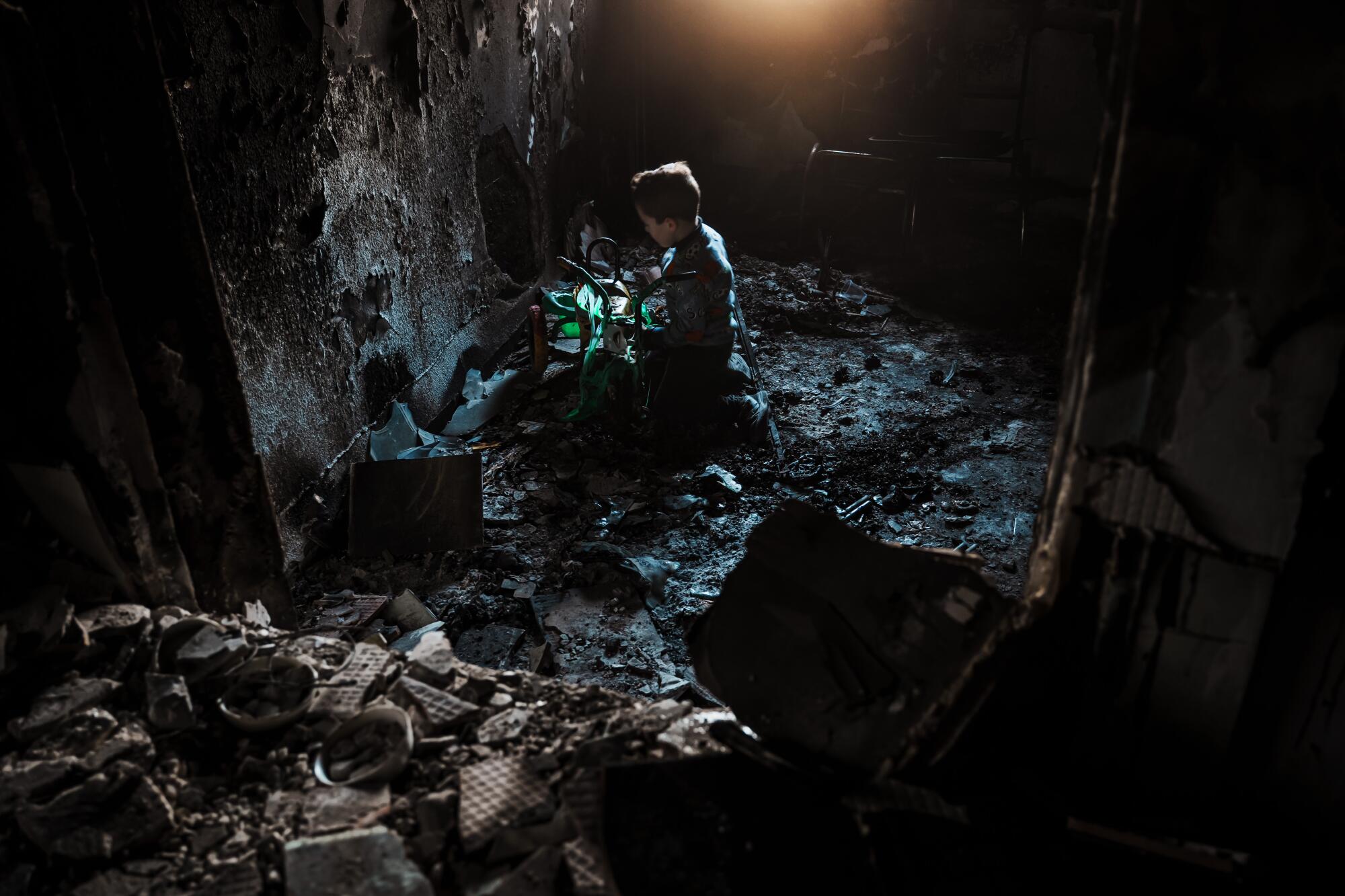
Layan Jalamneh, 14, was in the bedroom when one of the raids began, along with her mother, Sanadi, and siblings, including 11-month-old Ayla. When bullets blasted through the window and the wall, the children started screaming and bundled into another room. One round narrowly missed a hiding spot in the closet.
A good student, Layan hopes one day to be a doctor. But for the last month, she had not been able to go to school, with parents too afraid to send their children outside.
“The school is gone. My friends are gone,” she said, breaking into tears. “It feels like we have no childhood.”
— Marcus Yam contributed to this story.
More to Read
Sign up for Essential California
The most important California stories and recommendations in your inbox every morning.
You may occasionally receive promotional content from the Los Angeles Times.
